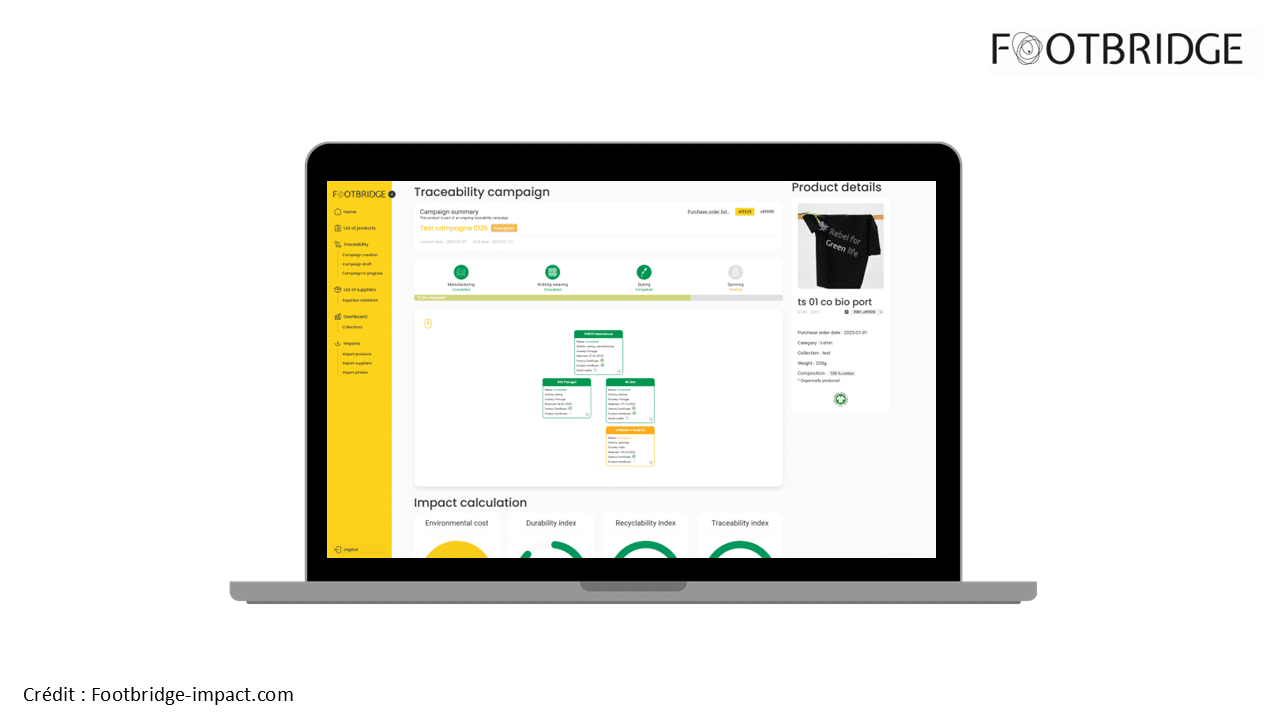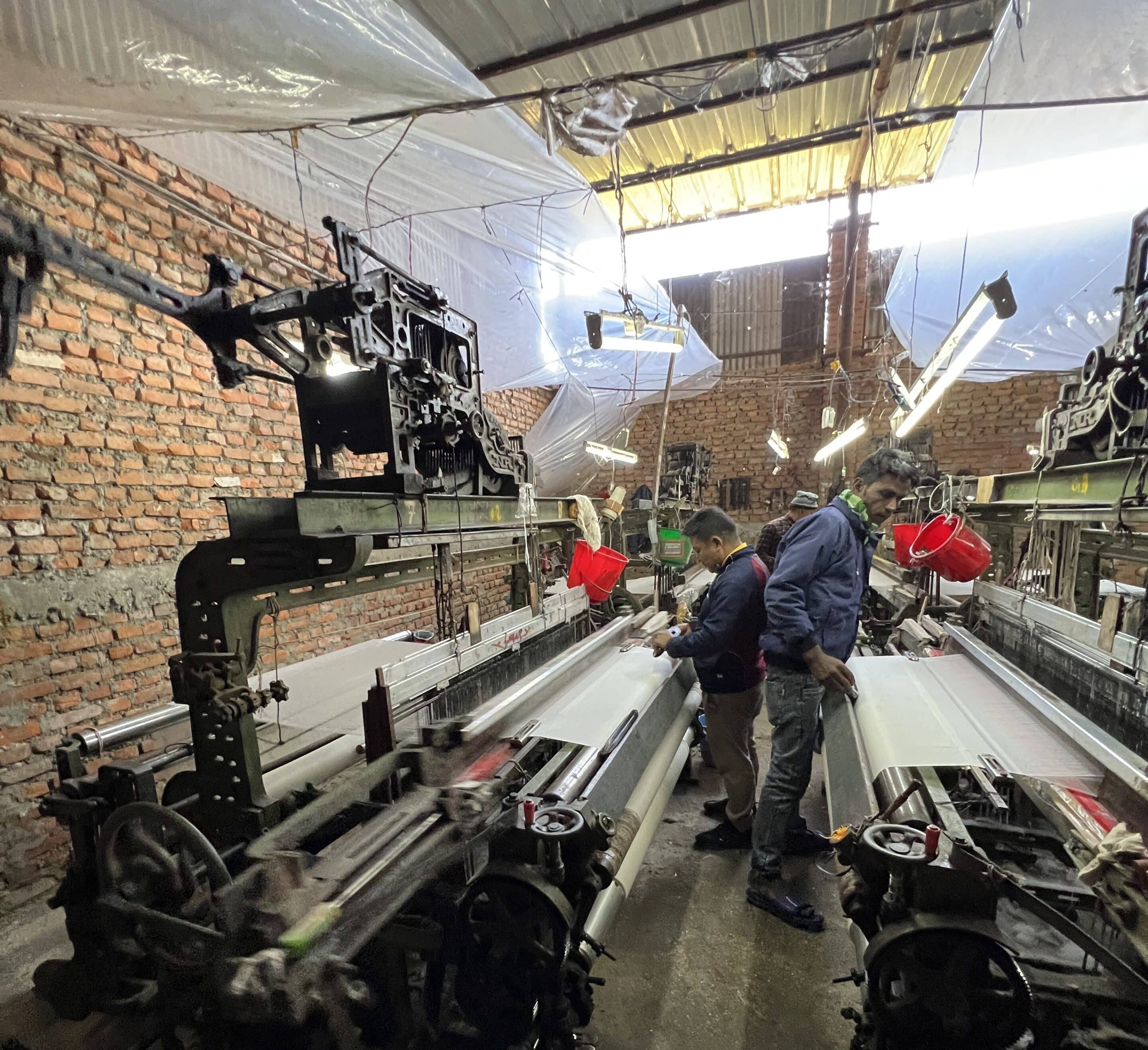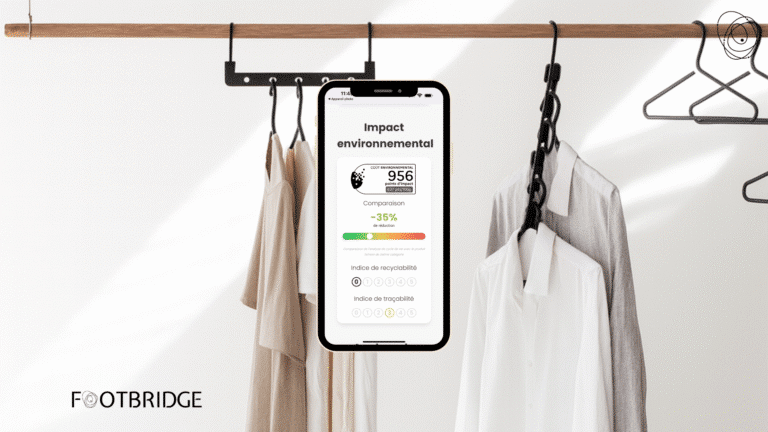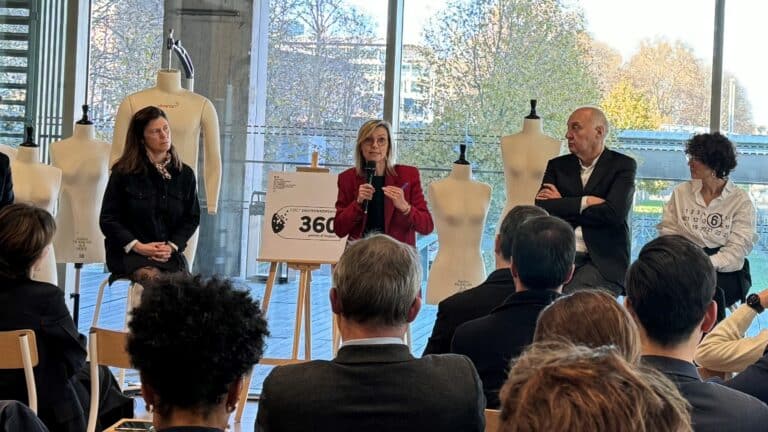Forced labor remains a worrying reality in many global supply chains, particularly in the fashion industry.
Faced with this situation, traceability is emerging as an essential tool for ensuring ethical and responsible practices. The Footbridge platform is positioned as an innovative solution to help companies meet these challenges, both socially and environmentally.
Sommaire
A global issue in a tense geopolitical context
While the Trump administration dismantled many of America’s environmental regulations, it did not call into question one key measure: the ban on imports of products from China’s Xinjiang region, which is suspected of using forced labor on a massive scale against Uighurs. This bipartisan stance, maintained and even reinforced by the Biden administration, demonstrates the extent to which the fight against forced labor is perceived as a strategic and moral priority, regardless of political agendas.
The Uyghur Forced Labor Prevention Act (UFLPA) passed in 2021 bans any product sourced, in whole or in part, from this region, unless the importer can clearly and documentedly demonstrate the absence of forced labor. This requirement for total transparency is forcing brands to review their supply chains from top to bottom.
Europe on the same track: towards a total ban on products made using forced labor
The European Union is following a similar trajectory, with the adoption in 2024 of a European regulation banning products made with forced labor (EU regulation 2024/3015). This regulation, applicable from 2027, follows on from the Corporate Sustainability Due Diligence Directive (CSDD) and the CSRD regulation. It aims to ban from the European market all products for which there is reasonable evidence of forced labor, at any stage of the chain.
One of the concrete levers to come is the Digital Product Passport, which will impose digital traceability of all stages in the manufacture of a product. This passport will be an essential transparency tool, integrating information on materials, suppliers, production conditions and social and environmental impact.
The competent authorities in member states, as well as the European Commission, are empowered to investigate suspected cases of forced labor. If a violation is confirmed, the products concerned must be withdrawn from the market, and companies may be subject to sanctions. This regulatory framework reinforces the need for companies to have effective traceability mechanisms in place to ensure the compliance of their supply chains.
Forced labor: a persistent problem in the fashion industry
According to the International Labor Organization (ILO), forced labor generates some $150 billion a year, affecting millions of people worldwide. In the textile industry, this exploitation often takes the form of degrading working conditions, inadequate wages and a lack of fundamental rights for workers.
Complex, globalized supply chains make it difficult to detect and prevent forced labor. Companies may unwittingly source from suppliers involved in such practices, compromising their social responsibility and reputation.
Reputational risks: scandals that leave their mark
Companies that fail to keep a close eye on their supply chains expose themselves to devastating scandals. We remember :
- Nike and H&M, criticized for using suppliers suspected of using forced labor in Xinjiang.
- Boohoo, in 2020, splashed by revelations of undignified working conditions in Leicester workshops, which led to a fall in its share price and the severance of commercial partnerships.
- Or Shein, regularly accused of massive human rights violations and a total lack of traceability.
These cases demonstrate that reputation no longer rests solely on marketing or design, but on the ability of brands to guarantee the ethics of their value chain.
Commercial risks: exclusion from distribution channels
Beyond image, the consequences can be purely economic. Several retailers, notably in the United States, are now refusing to list brands unable to guarantee production chains free of forced labor. E-commerce platforms such as Amazon and Zalando, under pressure from regulators and consumers alike, are introducing increasingly stringent traceability requirements for the brands they list.
A brand exposed to scandal or unable to demonstrate due diligence can lose entire markets. Access to supermarkets, marketplaces and international sales channels will increasingly depend on tangible proof of compliance.
Don’t reduce CSR to a bureaucratic obligation: an economic and ethical imperative
At a time when CSR is sometimes criticized as an excessive regulatory burden, it is essential to remember that fundamental issues such as forced labor are neither anecdotal nor ideological. They are about human realities and serious violations of fundamental rights.
Brands cannot be content with cosmetic reporting. As principals, they have a moral and operational responsibility to know, monitor and clean up their value chain. This requires not only transparency, but also the technical tools to structure this approach.
This is precisely the role of platforms like Footbridge, which can map supply chains, collect supplier data, detect areas at risk, and provide a structured, documented response to regulatory and ethical issues.
Chinese ultra fast fashion: differentiation through traceability
The phenomenon of ultra fast fashion, driven in particular by giants such as Shein and Temu, is shaking up the market. In 2023, Shein generated over $30 billion in sales, launching over 6,000 new models a day at unbeatable prices. These models are often produced in total opacity, with no social or environmental guarantees.
Faced with this digital and price invasion, French and European brands need to differentiate themselves on other values: quality, sustainability, ethics and, above all, transparency.
By claiming a traceable value chain, displaying concrete commitments, and using platforms like Footbridge, brands can not only comply, but also rebuild a bond of trust with their consumers.
Calculate the eco-score of your clothing
Master the environmental impacts of your designs with our dedicated platform.
Schedule a demoFootbridge: an innovative solution for responsible traceability
Footbridge is a SaaS platform developed by Good Fabric, which specializes in traceability and eco-design in the textile industry. It provides companies with advanced tools for collecting, analyzing and communicating data essential to the transition to sustainable fashion.

Key features of the platform:
- Traceability data collection: Footbridge makes it possible to trace the origin of raw materials, manufacturing processes and working conditions throughout the supply chain for all orders of each product reference.
- Environmental impact analysis: The platform automatically calculates the environmental footprint of products, helping companies to identify areas for improvement.
- Regulatory compliance: Footbridge helps companies to comply with current regulations, such as Article 13 of the Agec law, environmental labelling or Regulation (EU) 2024/3015, by providing documented proof of responsible practices.
- Transparency for consumers: Thanks to the Footbridge mobile app, brands can inform consumers about the origin, traceability and sustainable characteristics of their products.
The importance of traceability for ethical and sustainable fashion
Traceability is an essential lever for combating forced labor, reducing the environmental footprint and promoting ethical practices in the fashion industry. By identifying at-risk links in the supply chain, companies can take corrective action and prevent human rights violations.
What’s more, traceability strengthens the confidence of consumers, who are increasingly concerned about the social and environmental impact of their purchases. By offering transparency on the origin and manufacture of products, brands can differentiate themselves from ultra-fast fashion and meet the expectations of a committed clientele.
Conclusion
Forced labor is one of the most serious blind spots in textile globalization. Preventing it requires rigorous traceability, supported by regulations, but also a strong commitment on the part of brands. Using innovative tools such as Footbridge-Impact.com, they can transform this constraint into a lever for differentiation, trust and sustainable performance.
Sources :






